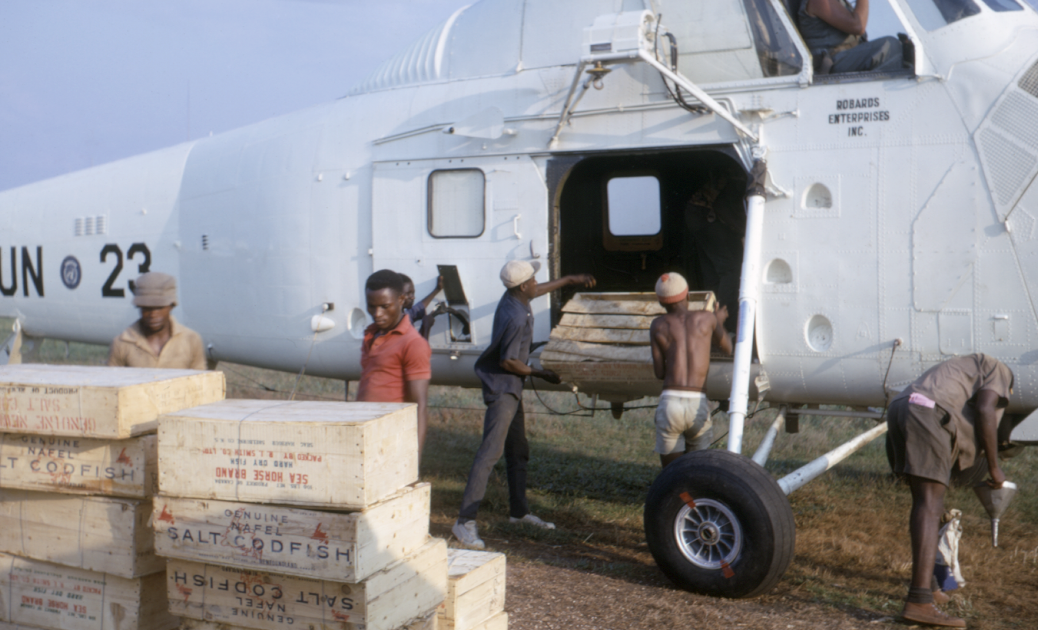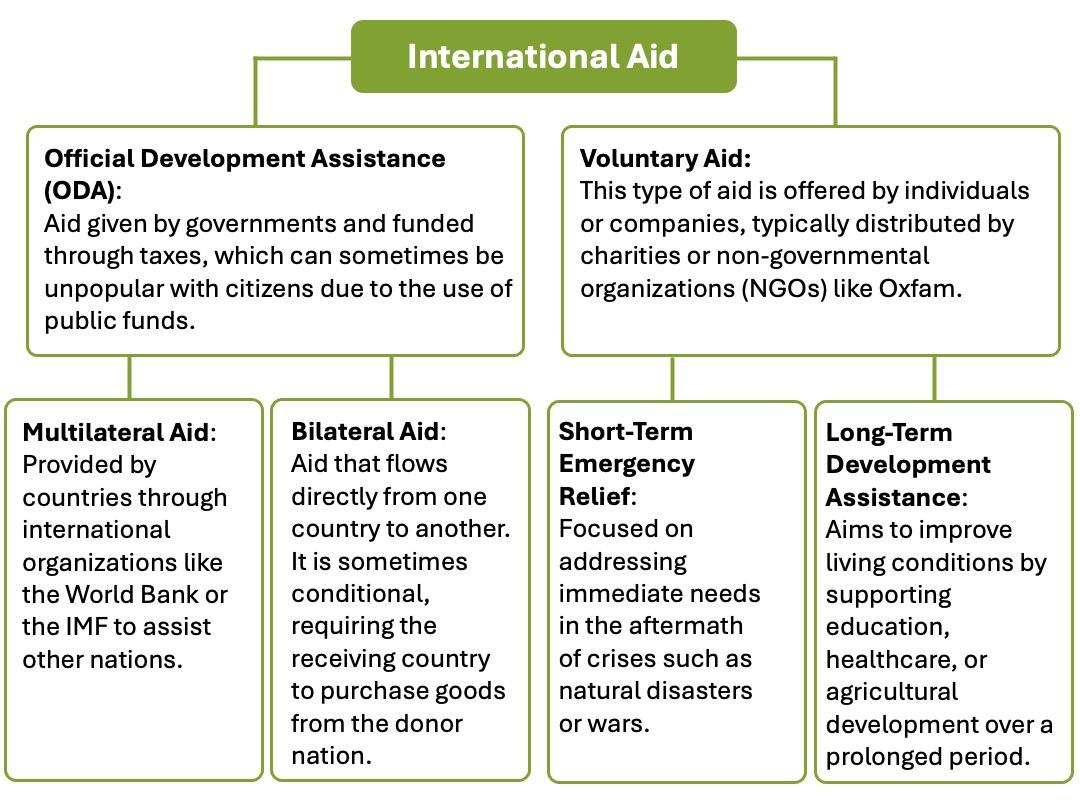International Aid in Nigeria
What is international aid?
International aid is help given by one country to another. It can include advice, technology, food, and money. Typically, aid is given to low-income countries (LICs) and newly emerging economies (NEEs) by high-income countries (HICs).
Aid can be given by national governments, international organisations, charities and non-government organisations (NGOs) (see the diagram below). The United Nations set HICs a target of committing 0.7% of their GDP to aid. The UK achieved this in 2013.
Why does Nigeria need aid?
The graph below shows the amount of aid received by Nigeria between 1960 and 2016.
One of the main reasons why Nigeria receives a considerable amount of aid is due to the significant inequality of wealth within the country. According to the UK Department for International Development (DFID), despite having the largest economy in Africa, around a third of Nigerians (60 million) live below the national poverty line, with around another third just above. The graph below shows the proportion of Nigerians living in extreme poverty.
Other issues in Nigeria include:
- a low life expectancy of 53.87 in 2017, according to the World Bank
- high birth rates at 5.5 children per woman
- the high infant mortality rate of 100 child deaths under 5 (per 1,000 live births)
- low literacy rates, with only 44% of children attending secondary school
- only 42% of children aged 12-23 months are immunised against measles
- violence and protests occur in the Niger Delta relating to oil wealth and its impact on the environment
- terrorism in the north by groups such as Boko Haram
- the high death rate from Malaria
Most aid comes from countries like the UK and the USA, but organisations like The World Bank and charities also provide support. The most successful aid projects are small and community-based, supported by charities and Non-Governmental Organisations (NGOs). These deliver help directly where needed so that no money is wasted.
What are the issues with giving aid to Nigeria?
Aid isn’t always used effectively in Nigeria because:
- Corruption in the government and individuals means aid is lost or not given to the right people. Nigeria scores 149 out of 180 on the Corruptions Perceptions Index.
- Nigeria’s government has grown overly reliant on foreign aid, often using it as a crutch rather than developing sustainable, long-term solutions. This dependency discourages investment in key sectors, as the government may delay addressing critical issues, knowing that international actors will provide money.
- There have been claims aid money has been used to supply the Navy.
- Aid donors may have political influence over who benefits and who does not. They may also use donations to promote themselves.
Few governments or international agencies now give aid directly to the Nigerian government.
How does Nigeria benefit from aid?
- Nets for Life project provides education on Malaria and gives mosquito nets to households to prevent the spread of the disease.
- World Bank-funded loans to businesses to help diversify the economy away from dependence on oil so that new companies and industries are developed.
- The UK government has funded health and HIV programmes that provide health and education in rural areas. These programmes will help protect people against infection in the future and help them to work and improve their own lives.
Find out more about the UK’s contribution to aid in Nigeria on the Department for International Development Aid to Nigeria factsheet.
How did Nigeria get into (and out of) debt?
In the 1980s and 1990s, Nigeria and many other low-income nations faced a significant debt crisis. These countries struggled to meet their debt obligations, forcing them to cut back on essential public services. Unlike wealthier nations, which could endure such austerity measures, these low-income countries were caught in a cycle of mounting debt repayments, as the interest alone often exceeded what they could pay. Despite paying back substantial amounts, the rising interest led to the accumulation of even more debt. By 2005, the international community, particularly the wealthiest countries, acknowledged the need for debt relief for 39 highly indebted poor countries (HIPCs), which included Nigeria. Through this initiative, a large portion of Nigeria’s debt was forgiven, reducing its repayment burden and allowing it to focus more on domestic economic development.
Does Nigeria still need aid?
Since 2005, Nigeria’s economy has grown substantially, transforming it from a low-income country into a newly emerging economy (NEE). This raises questions about whether it still requires international aid. In 2018, the UK contributed £300 million in aid to Nigeria, though this amount has decreased. Critics argue that, given Nigeria’s ability to fund ambitious projects like its space program, it no longer needs external assistance. However, supporters of continued aid point out that initiatives like Nigeria’s space program aim to improve crucial sectors, such as agriculture, by enhancing weather forecasting capabilities. Additionally, despite its economic growth, approximately 60 million Nigerians still live in poverty, surviving on less than US$1.25 a day. Much of the UK’s aid is directed toward development efforts in the country’s northeast, particularly to combat the influence of Boko Haram and stabilise the region.
Related Topics
Use the images below to explore related GeoTopics.



